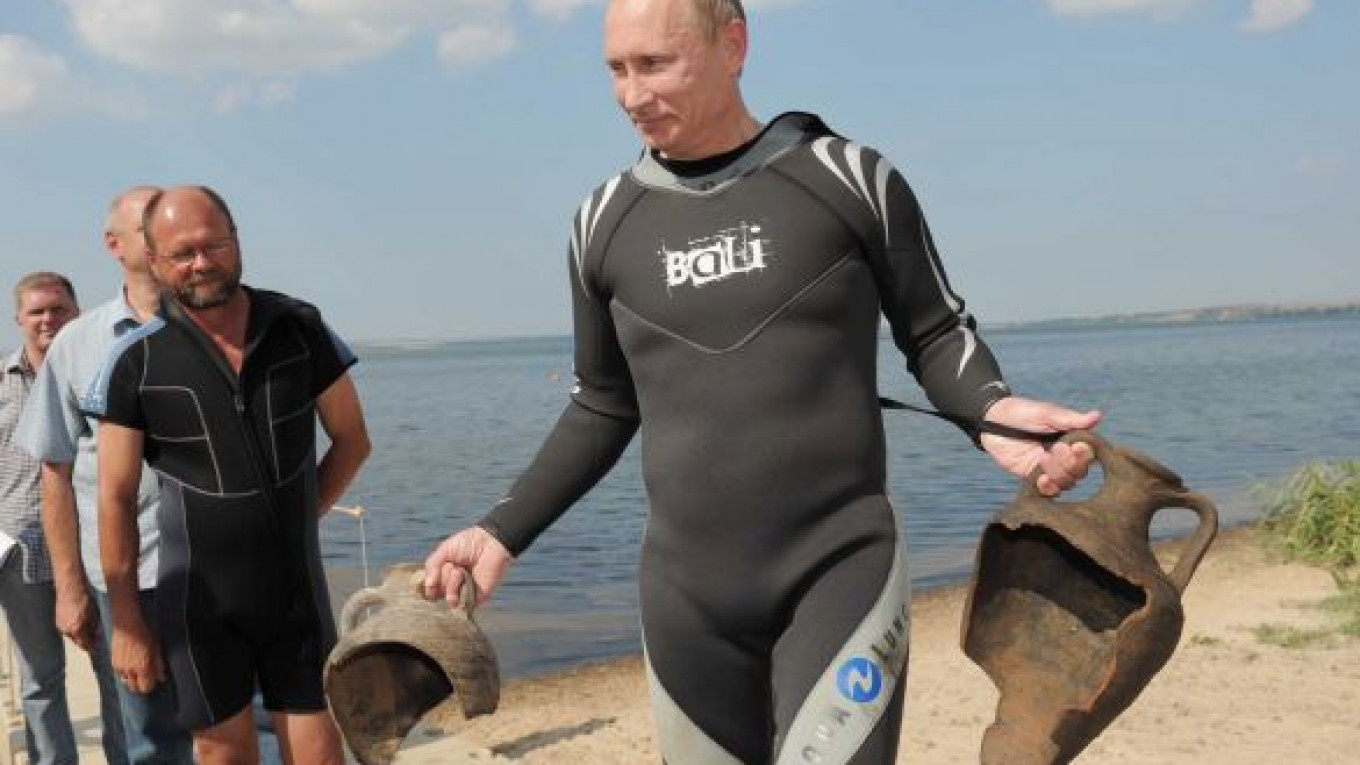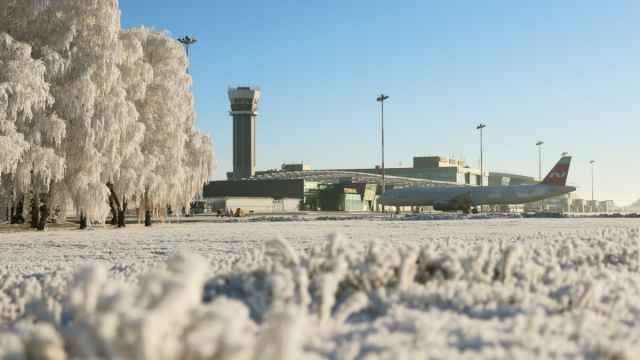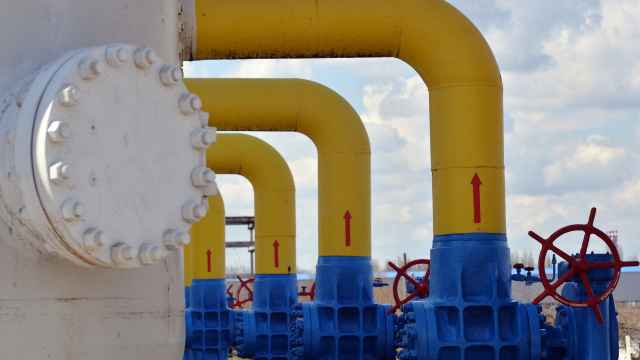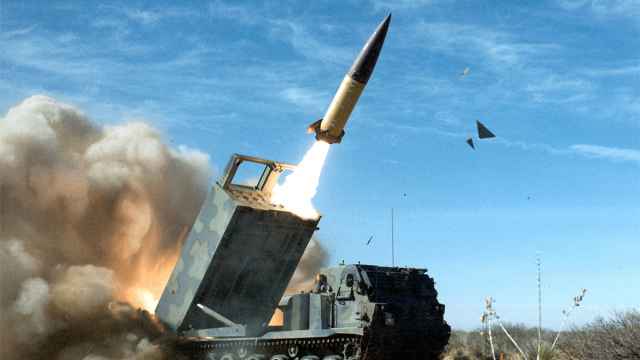Prime Minister Vladimir Putin's spokesman Dmitry Peskov raised eyebrows Wednesday after admitting that his boss's discovery of ancient amphorae in the Black Sea this summer was staged and claiming that fears of an imminent "Brezhnevization" were unfounded because Leonid Brezhnev was a good Soviet leader.
Speaking in a one-hour live on the Dozhd online television channel late Tuesday, Peskov also claimed that he was left in the dark about Putin's decision to return to the Kremlin until President Dmitry Medvedev announced it at the Sept. 24 party convention and that search engines' auto-complete functions were doctored to show unflattering keywords when entering "Putin."
Although Peskov is arguably the most accessible spokesman in the government, he has rarely appeared live on television, leading analysts to speculate that this was an attempt to calm the country's liberal intelligentsia who had hoped that Medvedev would run for a second presidential term.
"His motive is clearly to iron out imbalances of [Putin's] image before the prime minister is elected to the highest office," Tatyana Stanovaya, an analyst with the Center for Political Technologies, on Politcom.ru.
Dressed in a black suit and open white shirt, Peskov often chuckled when pressed by a round of five opposition-minded female journalists from various media outlets into explaining seemingly embarrassing details of Putin's elaborate image-building machine.
Asked by Vedomosti's Yulia Taratuta about the two Greek amphorae held up by Putin after a dive off the Black Sea coast in August, Peskov said it was obvious that Putin did not find them himself and that they had been placed by archeologists exploring the site.
"I was on vacation, and I could not think this up," he said.
But on Wednesday, Vladimir Kuznetsov, who headed the archeological team visited by Putin, denied this. "I did not order anyone to put amphorae there … and no member of my expedition made such an initiative," he the BBC.
Peskov also took pains to argue that frustration about Putin's likely return to the Kremlin was confined to the Moscow intelligentsia.
"There are people who think that the atmosphere in the country is suffocating and it is time to escape to the banks of the Thames River, while others want 3 percentage points off their taxes to get their farms going," he said.
In another sign of widespread concerns that the country will return to Soviet gerontocracy because Putin is allowed by the Constitution to serve two more six-year terms as president, the Russian Internet has been flooded over the past two weeks by an image of Putin's face superimposed on a portrait of Brezhnev.
Peskov argued that comparisons with the Brezhnev era were false because only the last few years of the Soviet leader's 18-year reign were characterized by stagnation, while the others laid a basis for economic growth.
"Brezhnev is not a negative in our country's history but a strong positive," he said.
But Peskov admitted that Putin was old-fashioned in some ways, saying he prefers to write by hand. He also said one popular sign that the Internet is an indicator of dissent was falsified.
Asked why search engines auto-complete searches for "Putin" with terms like "blows up buildings" or "and Kabayeva," he suggested that this was the result of elaborate schemes by his opponents.
"We know how this is done technically. … We know the authors of these efforts," he said, adding that he would not reveal any names.
Putin has been accused of being behind a series of deadly apartment bombings that killed almost 300 people three months before the 1999 State Duma elections.
Yandex, the country's most popular search engine, said it does not permit attempts to manipulate search prompts.
"Our task is to ensure that the prompts show users' real demands and interests," company spokeswoman Tatyana Komarova said in e-mailed comments. She added that Yandex was constantly improving its search algorithms to fight manipulation.
In April 2008, the Moskovsky Korrespondent newspaper reported that Putin was to marry Duma deputy and former rhythmic gymnast Alina Kabayeva. Peskov said the rumor was "slander" and claimed he had forgotten the paper's name.
Moskovsky Korrespondent was shut down after publishing the story, and its owner, media tycoon Alexander Lebedev, said at the time that this was purely because it was loss-making. In a sign of how far Lebedev's star has fallen, a criminal investigation was opened into him this week in connection with a recent televised brawl with another tycoon.
Peskov also serves as a powerful deputy chief of staff to Putin, but he suggested that he was not so close to the prime minister, saying he was just as surprised as anybody about his boss's announcement that he would reclaim the presidency.
"If anybody tells you that he knew in advance, he is lying," he said.
He was adamant that Putin and Medvedev had told no one about their decision to trade jobs after the March 2012 presidential election, which both leaders have said was made years ago.
However, one senior lawmaker from Putin's United Russia party rightly predicted the Sept. 24 announcement in an interview with The Moscow Times two days earlier.
Peskov also dismissed suggestions that he plays a leading role in Putin's image strategy, saying the prime minister has no need for that.
"Overall, Putin needs no press secretary, no image makers, no PR services. … Most often, it is he himself" who makes the decisions, he said.
Launched in 2010 as an online and cable television station, Dozhd, or Rain, has quickly become a focus for critical independent journalism. Its owner, Natalya Sindeyeva, also owns the Slon.ru portal and the Bolshoi Gorod weekly.
Bolshoi Gorod this week appeared with a daring front cover that showed nine lines of blank verse under the slogan "Enough" and ending with a call to "Sack them both."
A Message from The Moscow Times:
Dear readers,
We are facing unprecedented challenges. Russia's Prosecutor General's Office has designated The Moscow Times as an "undesirable" organization, criminalizing our work and putting our staff at risk of prosecution. This follows our earlier unjust labeling as a "foreign agent."
These actions are direct attempts to silence independent journalism in Russia. The authorities claim our work "discredits the decisions of the Russian leadership." We see things differently: we strive to provide accurate, unbiased reporting on Russia.
We, the journalists of The Moscow Times, refuse to be silenced. But to continue our work, we need your help.
Your support, no matter how small, makes a world of difference. If you can, please support us monthly starting from just $2. It's quick to set up, and every contribution makes a significant impact.
By supporting The Moscow Times, you're defending open, independent journalism in the face of repression. Thank you for standing with us.
Remind me later.







